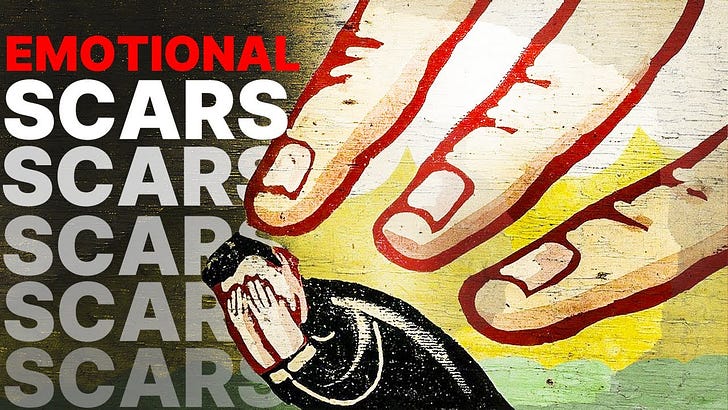OVERCOMING Emotional Neglect and Trauma: How To HEAL Your Emotional Scars
View the full video here:
Emotional Scars: A Normal Response to Trauma
• Emotional scars are a normal response to trauma, influencing our thoughts, emotions, and behaviors.
• They can last for years, affecting our self-esteem and trust in others.
Emotional Scars as a Response Previous Life Events
• Emotional scars can be triggered by specific events or reminders, reopening old wounds and reigniting pain.
• Verbal or emotional abuse can leave deep emotional scars that affect our self-esteem and trust in others.
• Experiences of discrimination or prejudice can cause long-term emotional wounds, eroding our confidence and sense of community.
Healing from Emotional Scars
• Healing from emotional scars is a tumultuous journey full of twists and turns, peaks and valleys.
• Healing is a messy, nonlinear dance between triumph and setback, requiring patience, resilience, and an unwavering commitment to extending the same compassion to ourselves as we do to others.
Addressing Emotional Scars with Other Therapeutic Approaches
• Somatic experiencing, EMDR, ecotherapy, art therapy, music therapy, and dance/movement therapy are other therapeutic modalities that can supplement traditional counseling methods.
• Self-compassion is another accessible and effective way to begin addressing emotional scars, entails treating ourselves with the same compassion, understanding, and support that we would extend to a close friend in need.
The Healing Power of Community and Connection
• Support groups and peer networks offer invaluable comfort and validation, but the bond we have with our animal companions can be a powerful balm for our wounded hearts.
By embracing these various healing modalities, we broaden our toolkit for emotional resilience, empowering ourselves to embark on a journey of self-discovery and transformation.




